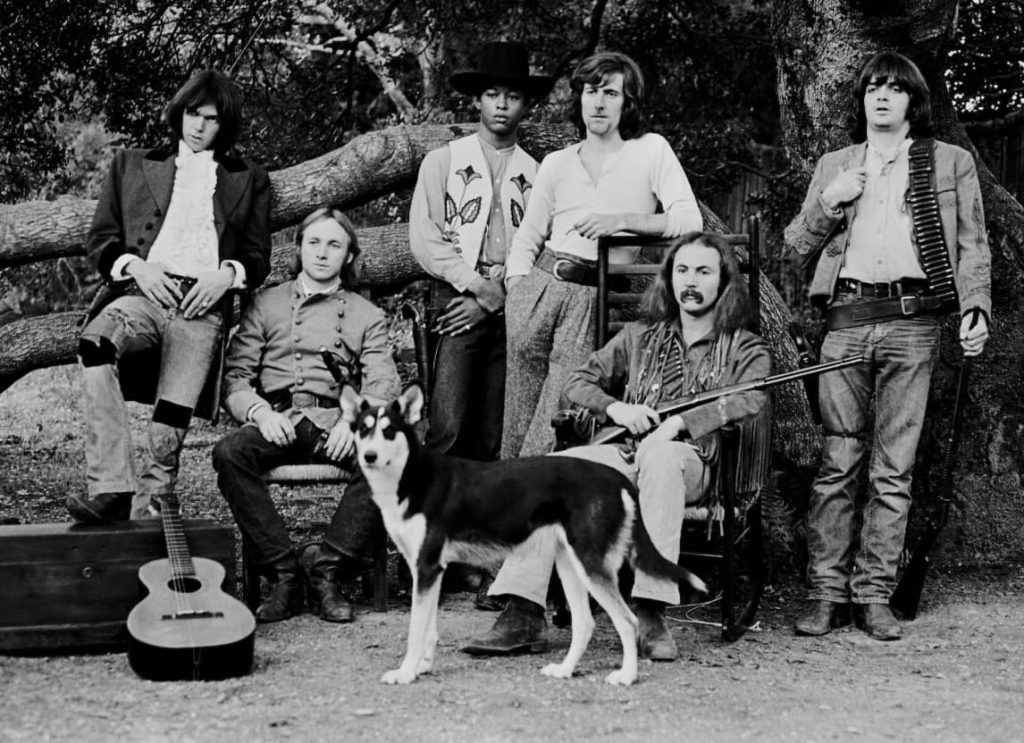
A Haunting Echo of Past Experiences and Uncertain Futures.
Released in March 1970 as the title track of their debut album, “Déjà Vu,” this song quickly became an anthem of its time, resonating with a generation grappling with social and political upheaval. The album itself topped the Billboard charts for weeks, cementing CSNY’s status as a supergroup of unparalleled influence. “Déjà Vu” peaked at number 22 on the Billboard Hot 100, a respectable showing for a song with such complex musical arrangements and lyrical themes.
The genesis of “Déjà Vu” is quite fascinating. David Crosby, deeply affected by the tragic death of his girlfriend Christine Hinton in a car accident, struggled to contribute to the album. Stephen Stills then presented a musical piece he had been working on. Crosby heard it and, struck by a sense of familiarity, proclaimed it gave him déjà vu. This spontaneous reaction not only gave the song its title but also ignited Crosby’s creative spark, allowing him to pen the lyrics. It’s a poignant example of how art can emerge from profound personal grief and shared human experiences.
The song’s lyrics are open to interpretation, which is part of its enduring appeal. On the surface, it speaks of a sense of having experienced a moment before, a feeling of familiarity in a seemingly new situation. However, within the context of the late 1960s and early 1970s, a period marked by the Vietnam War, civil rights protests, and a growing sense of disillusionment with the establishment, “Déjà Vu” took on a deeper meaning. It became a metaphor for the cyclical nature of history, the feeling that humanity was doomed to repeat its past mistakes. This resonated deeply with a generation witnessing the same patterns of conflict and social unrest that had plagued previous generations.
Musically, “Déjà Vu” is a masterpiece of intricate arrangements and dynamic shifts. It begins with a gentle, almost pastoral acoustic section, featuring Crosby’s haunting vocals. The song then builds into a powerful, electric crescendo, driven by Stills’s searing guitar work and the band’s tight harmonies. This dynamic structure mirrors the emotional arc of the lyrics, moving from a sense of quiet contemplation to a feeling of intense, almost overwhelming realization. The interplay between acoustic and electric elements creates a sense of tension and release, mirroring the uncertainty and anxiety of the times.
The album “Déjà Vu” as a whole was a landmark achievement, showcasing the incredible talent and synergy of Crosby, Stills, Nash & Young. It captured the zeitgeist of a generation, reflecting their hopes, fears, and frustrations. “Déjà Vu” the song, stands as a testament to the power of music to capture complex emotions and social realities. It’s a song that continues to resonate with listeners today, reminding us that the past is never truly gone, but rather echoes in the present. It makes one ponder the cyclical nature of history, the ever-turning wheel of human experience, and the haunting feeling that we’ve been here before. This sense of cyclical history, especially for those who have lived through many decades, adds a layer of profound meaning to the song, making it more than just a piece of music, but a reflection of the human condition. It’s a song to be revisited, contemplated, and felt, time and time again.